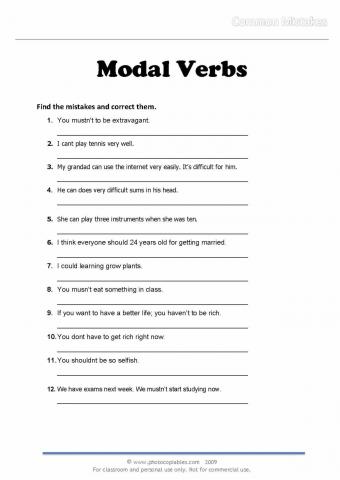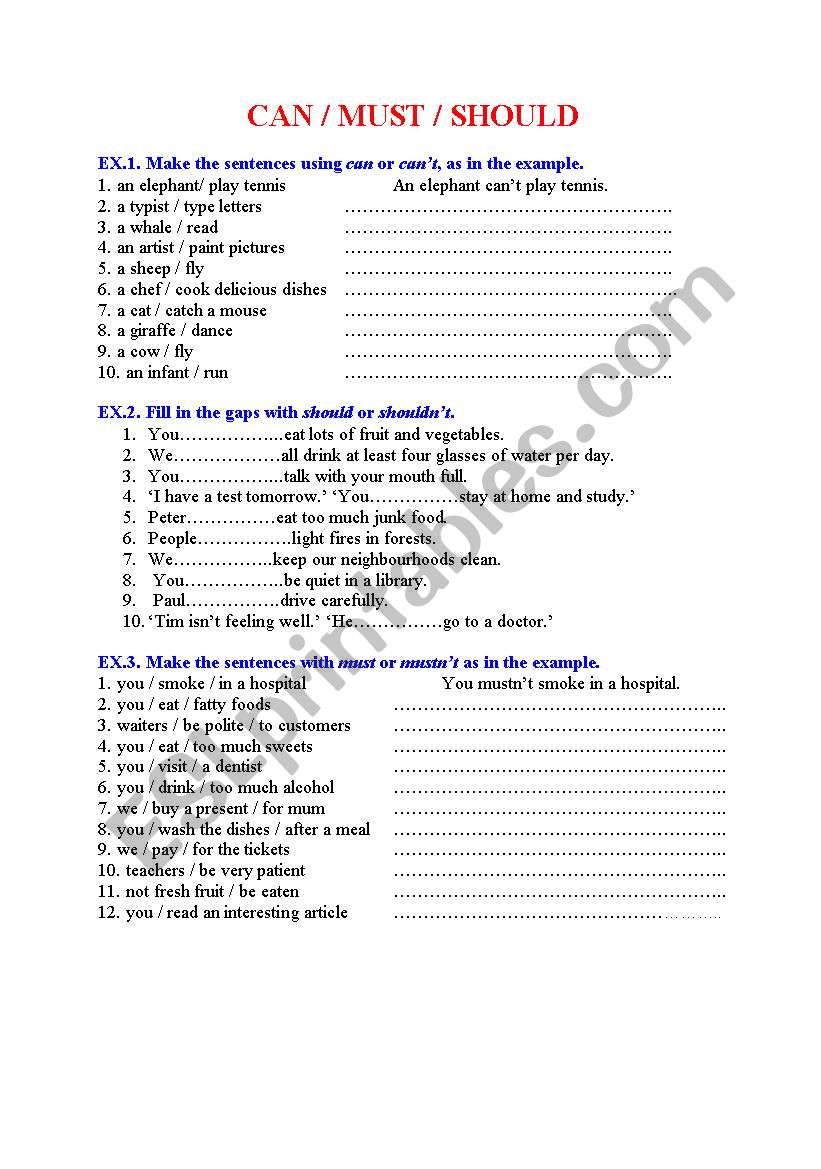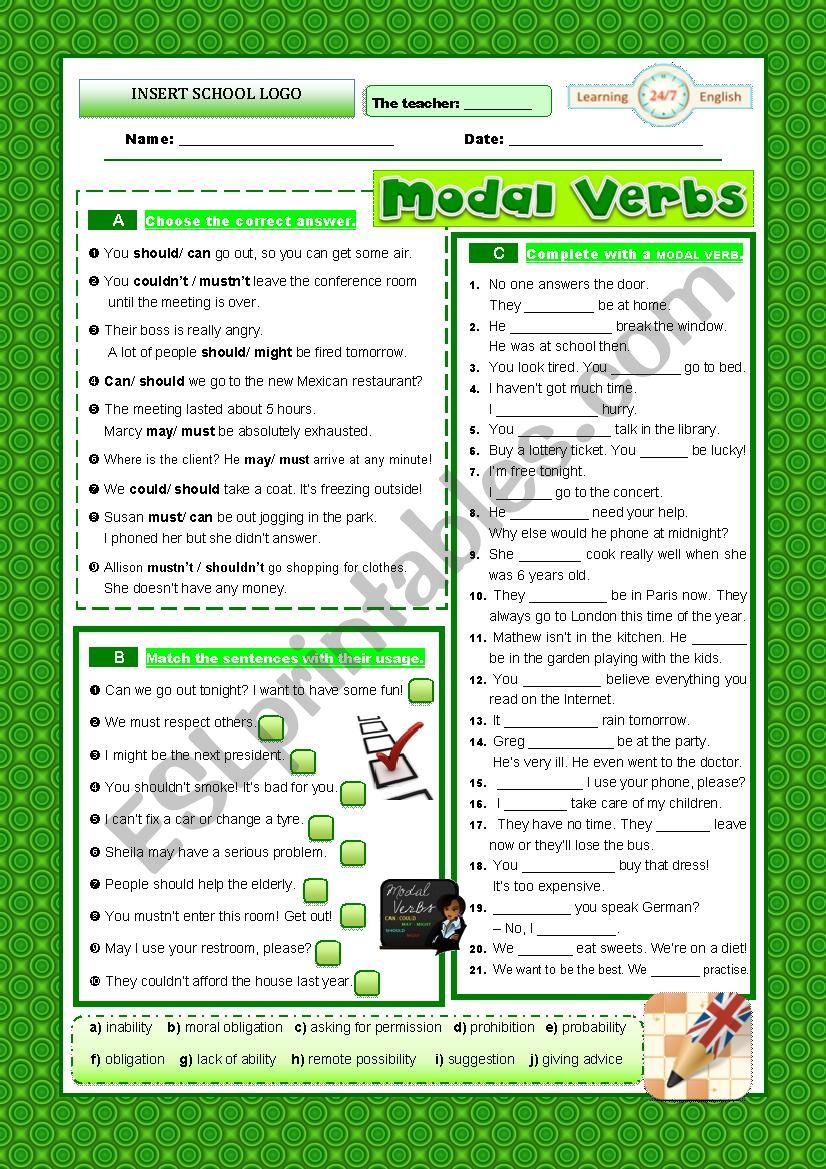

If I was educated, I would be a damn fool.Īs you are aware that modal verbs are used to express the mood and attitude of a speaker. Below are the examples of usages of modal verbs: Modal Verb The most common modal verb such as may, might, must, can, could, shall, should, will, would, and ought to are used in the sentences to help the main verbs. You can park the car in front of our house.You should regularly go for a morning walk.Simply we can say “A verb used to express mood(mode) or attitude of a speaker is called Modal Verb”.


Modal Verbs functions to help verbs to express probability, possibility, necessity, ability, duty, obligation, suggestion, advice, request, etc. The so-called "semi-modals" work partly like modals and partly like main verbs. Normally modal verbs cannot work alone and must work with the main verb. Modal verbs are one of the types of helping verbs (also known as "auxiliary verbs"). When a helping verb is used to express possibility, conditionality, necessity, obligation, ability, probability, or wishful desires then that verb is known as a Modal Verb. Helping verbs are further of two types, that is Primary Verbs and Modal Verbs. As we are familiar with verbs that are of two types, that is main verbs and helping verbs (also called auxiliary verbs). But what do modal verbs do? Why is it essential to have a modal verb in the sentence? So here in this article, we will get answers to all our questions. You, we, they will be allowed to go.Modal Verb: As we know verb is used to describe an action. May he come to your party? No, he must not. When you use other tenses you have to replace them. You can only use them with the present tense. Modal verbs don't have a past form (except can) and a past participle (3 rd form). The most common modal verbs are can, may and must. We also use them to make requests and offers. Modal verbs are types of auxiliary verbs which express necessity, ability, permission or possibility.


 0 kommentar(er)
0 kommentar(er)
